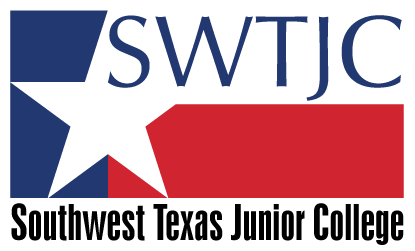3.7.2 Faculty Evaluation
The institution regularly evaluates the effectiveness of each faculty member in accord with published criteria, regardless of contractual or tenured status.
JUDGMENT: ![]() Compliant
Compliant
STATEMENT OF RATIONALE FOR JUDGMENT OF COMPLIANCE
Southwest Texas Junior College publishes evaluative regulations and procedures in the SWTJC Policy Manual (available online) DLA Legal and DLA Local. These policies are also published in the SWTJC Faculty Handbook, available for faculty, students, and community constituents online via swtjc.edu in the “About SWTJC; Handbooks” section.
DLA Local states that evaluations are “conducted every year for the first three years of an instructor’s employment, again during the sixth and tenth years of service, and then each five years thereafter.” These evaluations are performed for all faculty members without exception (i.e.: regardless of contractual or tenured status). In addition, a faculty member may be evaluated at any time for reasonable cause. Evaluation includes the following components:
- Self-Evaluation
- Student Evaluation
- Division Chair (i.e.: Supervisor) Evaluation of Faculty
Faculty members maintain a portfolio that includes a yearly Professional Development Plan, submitted by May 31st of each year. Described in its entirety on page 60-61 of the SWTJC Faculty Handbook, the faculty portfolio includes:
- Professional Development Plans
- Professional Development Activities including graduate hours, seminars, workshops, in-service training, professional meetings, consulting, and committees
- Faculty Profile including
- Teaching: all classes taught in the Fall and Spring semesters, load sheet, instructional methods, new courses taught, travel hours, and newly developed programs
- Institutional Service: committees served on, role, frequency of meetings
- Student Service: clubs/activities sponsored, frequency of meetings
- Professional Growth: workshops or conferences attended, membership in professional organizations, publications, current or completed research, grants or awards, community service
- Self-Evaluation Form with responses “yes,” “no,” “sometimes,” or “n/a” for a variety of evaluative questions related to instructional methods and professional commitments
- Professional Development Form based on self-evaluation, listing areas of strength, opportunities for improvement, goals, action plan, and any comments
- Professional Development Form based on student evaluations
- Professional Development Form based on supervisor evaluation
Student evaluations of faculty use a five-level Likert questionnaire (“strongly agree” to “strongly disagree”) with 17 items related to the instructor’s teaching methods. These evaluations also include open-ended questions regarding what a student liked most and least about an instructor’s teaching methods. Evaluation items have been phrased such that online students can respond to them.
Supervisor evaluations of faculty use a rating scale (ranging from 1 – Unsatisfactory to 5 – Excellent) for the following areas:
- Follows College Policies
- Quality of Work
- Resourcefulness
- Student Rapport/Service
- Peer Rapport/Administrative Support
- Professionalism
- Student Evaluations
A class visitation form is included in supervisor evaluation of faculty. This form also uses a rating scale (ranging from 1 – Unsatisfactory to 5 – Excellent) and measures items such as timeliness, student participation, and appropriateness of presentation.
Adjunct Faculty
SWTJC adjunct faculty are also evaluated regularly by students with the instrument described above. In addition adjuncts, especially those teaching for the first time, are visited by the Coordinator of adjunct faculty evaluations, whose primary job function is to mentor and monitor part-time faculty. This staffer submits a written report monthly to the Vice President for Academic Affairs, the Vice President of Student Services, the Dean of Liberal Arts, and the Dean of Applied Sciences describing his various interactions with adjunct instructors. Those interactions include instruction on submitting syllabi and class attendance; introduction to the basics of the Portal learning management system; scheduled and un-scheduled class visitations; and trouble-shooting problem situations with adjuncts. All professional development requirements applicable to full-time faculty also apply to adjunct instructors.
Evidence
SWTJC Policy DLA (Legal) Employee Performance Evaluation
SWTJC Policy DLA (Local) Status of Employment Evaluation
SWTJC Faculty Handbook, 2014, pp. 59-60
SWTJC Self Evalutation
SWTJC
Student Evaluation of Faculty
SWTJC Division Chair Evaluation of Faculty
SWTJC Faculty Handbook, 2014, p. 67-70
SWTJC Faculty Handbook, 2014, pp. 72-75
SWTJC Faculty Handbook, 2014, pp. 60-61
SWTJC Faculty Handbook, 2014, pp. 62-64
SWTJC Faculty Handbook, 2014, p.65
SWTJC Faculty Handbook, 2014, p. 66
SWTJC Faculty Handbook, 2014, p.71
SWTJC Faculty Handbook, 2014, p.78-79
SWTJC Faculty Handbook, 2014, pp. 76-77
SWTJC Evaluation of Adjunct Faculty by Supervisor
SWTJC Monthly Report to Academic Affairs for November 2014


